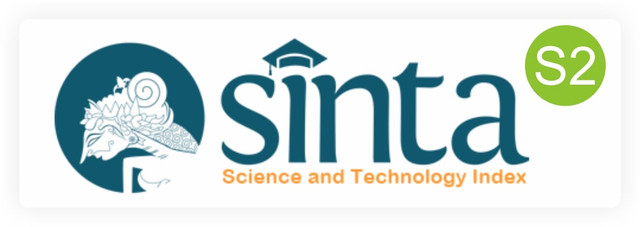Validity and reliability of “Short-questionnaire of tuberculosis patients’ knowledge about anti-tuberculosis and hepatotoxicity” (SQ-KSH-TB)
DOI:
https://doi.org/10.12928/pharmaciana.v13i1.24773Keywords:
short questionnaire, tuberculosis, side effect, hepatotoxicityAbstract
Until presently, tuberculosis has been a burden to Indonesia, placing the country third among countries with the heaviest tuberculosis burden in the world. Tuberculosis treatment takes a long period and may cause side effects. Therefore, it requires sufficient tuberculosis knowledge on the patients' part for the patients to know of the side effects of anti-tuberculosis and how to deal with them. This research aimed to obtain a short questionnaire of tuberculosis patients' knowledge about anti-tuberculosis and hepatotoxicity (SQ-KSH-TB) which determines patients' knowledge of anti-tuberculosis side effects and how to handle them. This research employed a cross-sectional design and involved 17 public health services (puskesmas) and three hospitals in Yogyakarta Province. The inclusion criteria were patients diagnosed with pulmonary tuberculosis and being in a tuberculosis treatment period with a public health service or a pulmonary hospital in Yogyakarta Province. The exclusion criteria were the patients passing away, having completed a six months treatment or having been receiving treatment for over six months, and being unwilling to cooperate in the research. The questionnaire used in this research was a questionnaire that was developed based on prior research work, containing eight questions on a Guttman scale. Validity and reliability analyses were carried out with Pearson's product-moment correlation and the Kuder-Richardson-20 test, respectively. As many as 194 subjects enrolled in this research. The eight questions in the questionnaire had r count values greater than the r table, hence meeting the validity criterion. Meanwhile, the KR-20 value obtained was 0.721, indicating a good level of reliability. The SQ-KSH-TB was able to meet the validity and reliability criteria, showing applicability in the Indonesian context.
References
Alimul Hidayat, A. A., Marini, G., Anjani, R. U., & Sukadiono. (2020). Predictor Factors of Tuberculosis Transmission Prevention in Surabaya, Indonesia. Systematic Reviews in Pharmacy, 11(8), 137–141. https://doi.org/10.31838/srp.2020.8.20
Collins, D. and C. N. (2017). The economic cost of non-adherence to TB medicines resulting from stock-outs and loss to follow-up in Kenya. Management Sciences for Health., 1–40.
Fernandez-Lazaro, C. I., García-González, J. M., Adams, D. P., Fernandez-Lazaro, D., Mielgo-Ayuso, J., Caballero-Garcia, A., Moreno Racionero, F., Córdova, A., & Miron-Canelo, J. A. (2019). Adherence to treatment and related factors among patients with chronic conditions in primary care: A cross-sectional study. BMC Family Practice, 20(1), 1–12. https://doi.org/10.1186/s12875-019-1019-3
Fraenkel, J. L., Wallen, N. E., & Hyun, H. H. . (2012). How to design and evaluate research in education eighth edition. Mc Graw Hill.
Jamaludin, T. S. S., Ismail, N., & Saidi, S. (2019). Knowledge, awareness, and perception towards tuberculosis disease among International Islamic University Malaysia Kuantan students. Enfermeria Clinica, 29, 771–775. https://doi.org/10.1016/j.enfcli.2019.04.116
Kemenkes RI. (2018). Tuberkulosis. Pusat Data dan Informasi Kementrian Kesehatan RI, 1(april), 2018. www.kemenkes.go.id
Kementeritan Kesehatan RI. (2015). Survei Prevalensi Tuberkulosis 2013-2014.
Kumar, P. S., Vidya, R., Tabassum, & Jageer, M. (2020). Anti-tuberculosis treatment: Induced hepatotoxicity – A case report. Electronic Journal of the International Federation of Clinical Chemistry and Laboratory Medicine, 31(3), 242–247.
Leman, M. A. (2018). Cara Praktis Melakukan Uji Validitas Alat Ukur Penelitian. Gosyen Publishing.
Menteri Kesehatan Republik Indonesia. (2019). Keputusan Menteri Kesehatan Tentang Pedoman Nasional Pelayanan Kedokteran Tata Laksana Tuberkulosis. In Menteri Kesehatan Republik Indonesia (Nomor 2).
Muñoz-Sánchez, A. I., Rubiano-Mesa, Y. L., & Saavedra-Cantor, C. J. (2019). Measuring instrument: Knowledge, attitudes and practices of people with pulmonary tuberculosis. Revista Latino-Americana de Enfermagem, 27. https://doi.org/10.1590/1518-8345.2608.3086
Saqib, A., Atif, M., Ikram, R., Riaz, F., Abubakar, M., & Scahill, S. (2019). Factors affecting patients’ knowledge about dispensed medicines: A Qualitative study of healthcare professionals and patients in Pakistan. PLoS ONE, 13(6), 1–22. https://doi.org/10.1371/journal.pone.0197482
World Health Organization. (2021). Global tuberculosis report. In Geneva: World Health Organization.
World Health Organization. (2022). World Tuberculosis Day 2022. Geneva: World Health Organization. https://www.who.int/indonesia/news/campaign/tb-day-2022#:~:text=World Tuberculosis Day 2022&text=Setiap tahun%2C kita memperingati Hari,untuk mengakhiri epidemi TB global.
Zegeye, A., Dessie, G., Wagnew, F., Gebrie, A., Islam, S. M. S., Tesfaye, B., & Kiross, D. (2019). Prevalence and determinants of anti-tuberculosis treatment non-adherence in Ethiopia: A systematic review and meta-analysis. PLoS ONE, 14(1), 1–15. https://doi.org/10.1371/journal.pone.0210422
Downloads
Published
Issue
Section
License
Authors who publish with Pharmaciana agree to the following terms:
- Authors retain copyright and grant the journal the right of first publication with the work simultaneously licensed under a Creative Commons Attribution License (CC BY-SA 4.0) that allows others to share the work with an acknowledgment of the work's authorship and initial publication in this journal.
- Authors are able to enter into separate, additional contractual arrangements for the non-exclusive distribution of the journal's published version of the work (e.g., post it to an institutional repository or publish it in a book), with an acknowledgment of its initial publication in this journal.
- Authors are permitted and encouraged to post their work online (e.g., in institutional repositories or on their website) prior to and during the submission process, as it can lead to productive exchanges, as well as earlier and greater citation of published work.


1.png)











